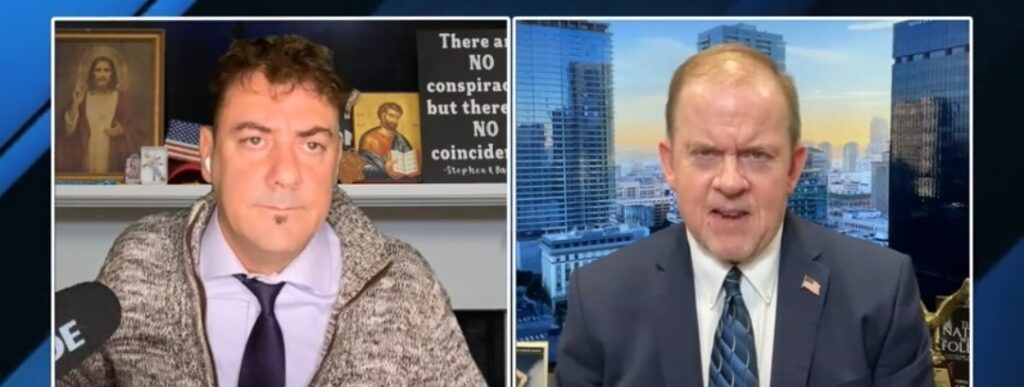On October 10, 2024, Ben Harnell, guest hosting The War Room, engaged with retired Colonel John Mills to delve into the controversial narrative surrounding Russia’s involvement in U.S. elections. Harnell emphasized the importance of supporting political prisoners, particularly Steve Bannon, the War Room’s founder. Mills highlighted the narrow scope of federal election laws, noting that only about five laws pertain to elections, which raises questions about the ongoing discourse surrounding election interference. He specifically pointed out 18 U.S. Code 611, which emphasizes the necessity of U.S. citizenship for voting, a critical detail that Mills argued was overlooked in wider discussions.
Mills further critiqued how the deep state has manipulated perceptions around Russia’s actions, particularly by claiming that Russia was backing former President Trump due to attacks on Vice President Kamala Harris. Mills strongly contended that the narrative linking Russia’s actions to Trump lacked factual support and underscored a dangerous trend of accepting narratives without critical examination. He warned against being ensnared by a misleading narrative, asserting that this mindset undermines the complexity of international relations and domestic politics.
The conversation took a darker turn as Mills discussed Iran’s purported involvement in election-related assassination attempts. Citing references from the Department of Justice, Mills stated that at least three operatives had been linked to assassination plots, drawing attention to the serious implications of Iranian interference. He highlighted an Iranian contractor’s access to flight data as particularly alarming, given it could potentially facilitate tracking of high-profile figures, including Trump himself. Mills underscored that such election interference attempts were not part of mainstream narratives, signaling a dangerous oversight and a skewed focus on Russia while neglecting other significant threats.
Mills traced the implications of Iran’s actions further, asserting that if Iran acts as a proxy for China in these interference efforts, it broadens the scope of foreign influence in U.S. elections significantly. This assertion linked Iran’s activities to larger geopolitical dynamics that implicate China, suggesting that concerns about election integrity need a reevaluation in the context of broader international relationships. Such assertions posited the argument that U.S. electoral safety might be at risk from multiple foreign entities, complicating the simplistic narratives often presented by the media.
As the discussion unfolded, Mills drew from his nearly four decades of governmental experience to critique the operational narratives of intelligence agencies. He coined the term “tyranny of the narrative,” criticizing the prevailing intellectual laziness within government circles that disregards critical inquiry in favor of accepted narratives. Mills lamented that this phenomenon stifles nuanced discussions about complex geopolitical dynamics and constraints on truthful discourse about foreign influence in elections. His concern indicates a broader issue concerning the loss of analytical rigor in evaluating the actions of foreign nations in U.S. politics.
In closing, Mills called for a more informed and critical evaluation of the narratives surrounding foreign influence in American elections and the roles of various countries like Russia and Iran. He urged that these dialogues should go beyond surface-level narratives to encompass the intricate realities that shape international relations and domestic political landscapes. The conversation reveals a pressing need for vigilance and discernment in public discourse about election integrity, the influence of foreign adversaries, and the implications for U.S. democracy. As the War Room continues to dissect these critical issues, the narrative surrounding foreign interference remains a vital topic needing further inquiry and discussion.

